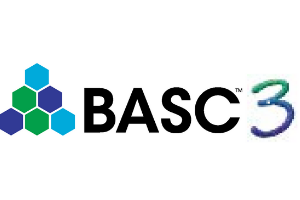Description
The BASC-3 Parenting Relationship Questionnaire (BASC-3 PRQ) captures a parental perspective on the parent-child relationship.

The BASC-3 Parenting Relationship Questionnaire (BASC-3 PRQ) captures a parental perspective on the parent-child relationship.
The BASC-3 Parenting Relationship Questionnaire (BASC-3 PRQ) captures a parental perspective on the parent-child relationship.
Randy W. Kamphaus, PhD, Cecil R. Reynolds, PhD
Age Range:2:0-18:11
Scoring Option:Q-global™ Web-based Administration, Scoring, and/or Reporting, or Manual Scoring
Reading Level:Other Languag
RTI Tiers:RTI Levels 2 and 3
Completion Time:10-15 minutes
Scores/Interpretation:T scores and percentiles, for a general population
Publication Date:2015
Developed by the authors of the BASC-3, the Parenting Relationship Questionnaire (PRQ) is designed to capture a parent’s perspective on the parent-child relationship. The PRQ has two forms:
which can be completed in 10-15 minutes by the mother, father or other primary caregiver.
The PRQ was designed to provide information that is useful across a variety of settings and applications, including:
| PRQ Scale Definitions | |
| Scale | Definition |
| Attachment | The affective, cognitive, and behavioral relationship between a parent and child that results in feelings of closeness, empathy, and understanding on the part of parent for the child. |
| Communication | The qualify of information exchanged between the parent and child and the parent’s listening skills that promote a trusting relationship. |
| Discipline Practices | The tendency of a parent to consistently apply consequences or punishment in response to a child’s misbehavior, along with a corresponding belief that rule establishment and adherence to rules is desirable. |
| Involvement | The extent to which the parent and child participate together in a variety of common activities, along with the parent’s knowledge of the child’s activities. |
| Parenting Confidence | The comfort, control, and confidence of the parent when actively involved in the parenting process and when making parenting decisions. |
| Satisfaction With School | The parent’s belief that the school is doing a good job of meeting the child’s educational and emotional needs. |
| Relational Frustration | The parent’s level of stress or distress in relating to and controlling the behavior and affect of the child, along with the tendency to be overreactive and frustrated in common parenting situations. |